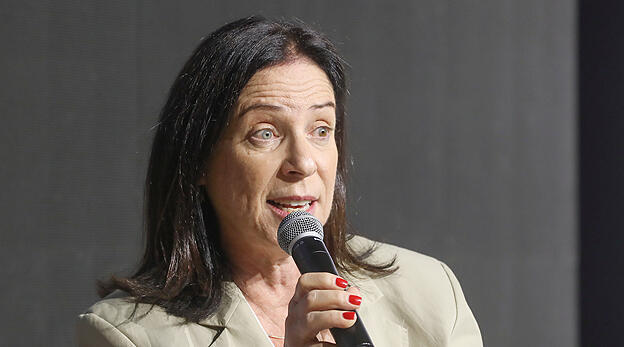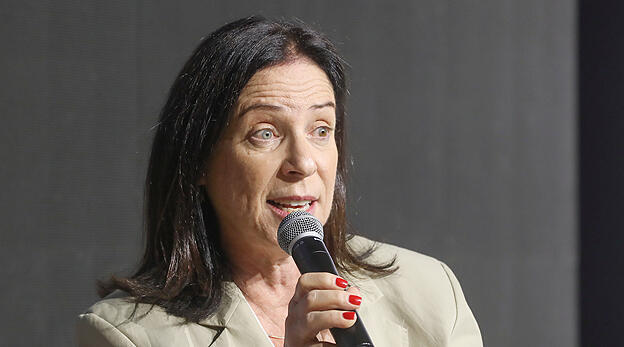
"Purchasing power is starting to weaken, and the cost of products is increasing”
Yafit Gheriani, Deputy CEO & Head of Business Clients Division at Isracard, was speaking during Calcalist’s e-commerce conference
What is the best way to help small businesses, and is it enough? This question was at the heart of a discussion with Yafit Gheriani, Deputy CEO & Head of Business Clients Division at Isracard, during Calcalist’s e-commerce conference.
"If we look at the first half of 2023, we will see a growth of 10%, but in the first quarter, there was a growth of 15%, and in the second quarter, a growth of 5%," Gheriani explained. According to her, "Purchasing power is starting to weaken, and the cost of products is increasing. If we look at clothing and footwear, there is a pullback in the first quarter. We have had four quarters of stability in purchases, but there is a decrease in growth."
On the business level, how is this manifested in terms of small businesses?
"There are 625,000 businesses in Israel, many of them small and medium-sized, with 550,000 being small businesses. If we look at what has been happening to them recently, there is no doubt that interest rates are changing the rules of the game. Everyone is talking about mortgages, but if we look at a small business that took out a loan of NIS 300,000, it became more expensive by NIS 700 to 800 a month just because of the prime rate. The creditor also raised the risk premium, resulting in an additional expense of over 1,000 NIS a month.
"At the end of the day, there is something in Israel's payment ethics that makes it difficult for small businesses. There is a pay-as-you-go mentality here, so a small business has to finance itself, and this is a big expense. There is a domino effect because if a small business falls and owes others for three months, then the debt increases. The financing costs are significant, and the purchasing power of Israelis is also starting to decline."
And what will happen in 2024?
"If we look at the BDI forecasts, every year 40,000 businesses close, but next year there will be 60,000 businesses that will close in Israel. When we talk about buying in e-commerce and look at small and medium-sized businesses, they make up 60% of the employed in Israel. Their vulnerability is significant, and their survival is low. Let's not forget that half of the small businesses in Israel close within their first five years. The rules of the game must change so that small businesses can survive and the economy will progress."
Is there disruption here?
"On the one hand, yes, there is a disruption. There is optimism that the survival of small businesses will increase when technological systems are used for small businesses. There is AI, for example, and if it is applied to small and medium businesses, their survival will increase, and their flow management will improve.
"There are solutions here, and we have to think about how we can combine them for the benefit of the Israeli market. Every business that closes and its owners and employees stop getting paid, it hurts purchasing power. The trick is to take all the fintechs and make the infrastructure of big businesses accessible to small businesses. A small business doesn't have a VP of Marketing or a VP for data, and therefore these platforms must be made accessible to small businesses."














